Elvira Kadyrova and Raviliya Kadyrova
Ashgabat hosted Friday, 11 October 2019, the summit of the heads of state of the Commonwealth of Independent States.
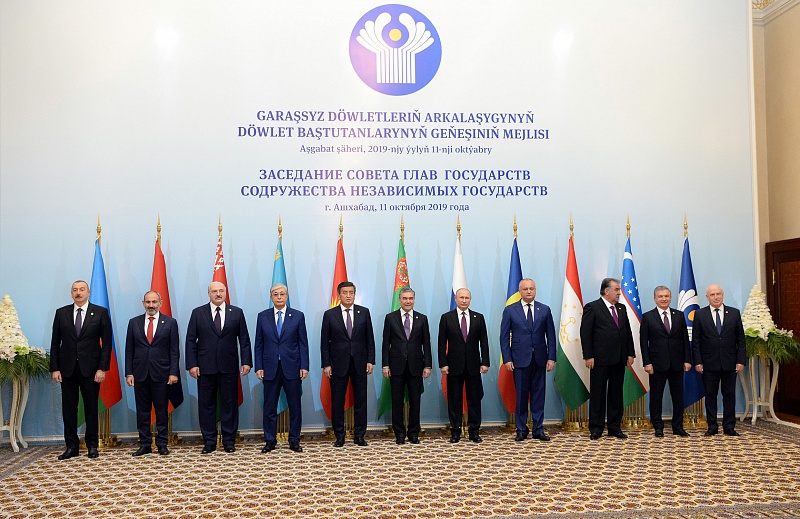
The summit was attended by:
- President of Azerbaijan Ilham Aliyev
- President of Belarus Alexander Lukashenko
- President of Kazakhstan Kasym-Jomart Tokayev
- President of the Kyrgyz Republic Sooronbay Jeenbekov
- President of the Republic of Moldova Igor Dodon
- President of Russia Vladimir Putin
- President of Tajikistan Emomali Rahmon
- President of Uzbekistan Shavkat Mirziyoyev
- Prime Minister of Armenia Nikol Pashinyan
- Chairman of the Executive Committee – CIS Executive Director Sergey Lebedev.
During the summit, the instruments regulating relations between the CIS member States in the field of economy, foreign policy, security and countering new challenges and threats were approved.
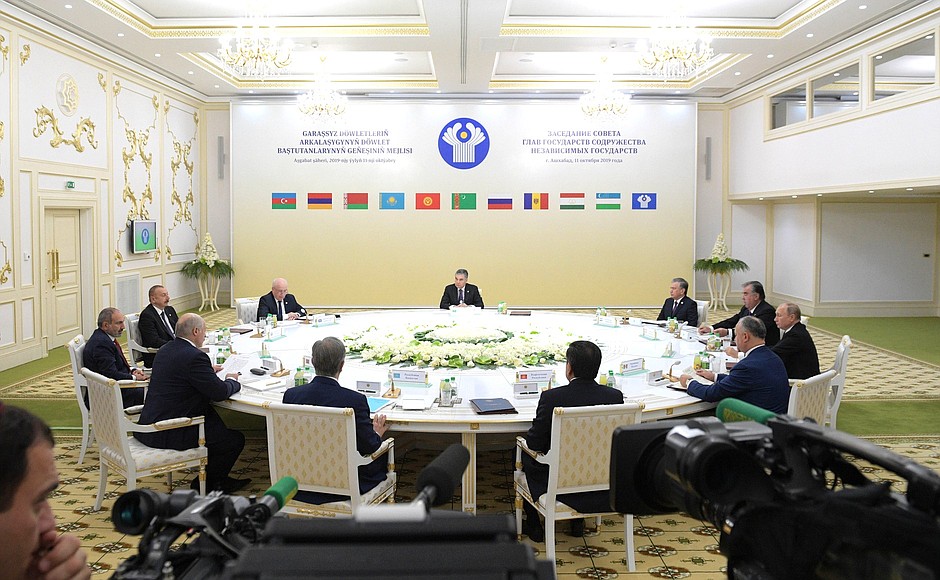
The agenda of the meeting in a narrow format included the following issues on which appropriate decisions were taken:
- Uzbekistan’s chairmanship in the CIS in 2020. Turkmenistan and the Republic of Belarus will co-chair the CIS in 2020
- Next summit of the Council of heads of state of the CIS will take place on 16 October 2020 in Tashkent, Uzbekistan.
During the narrow format, the heads of state made speeches, revealing their visions for the future development of the CIS and its place in the international arena.
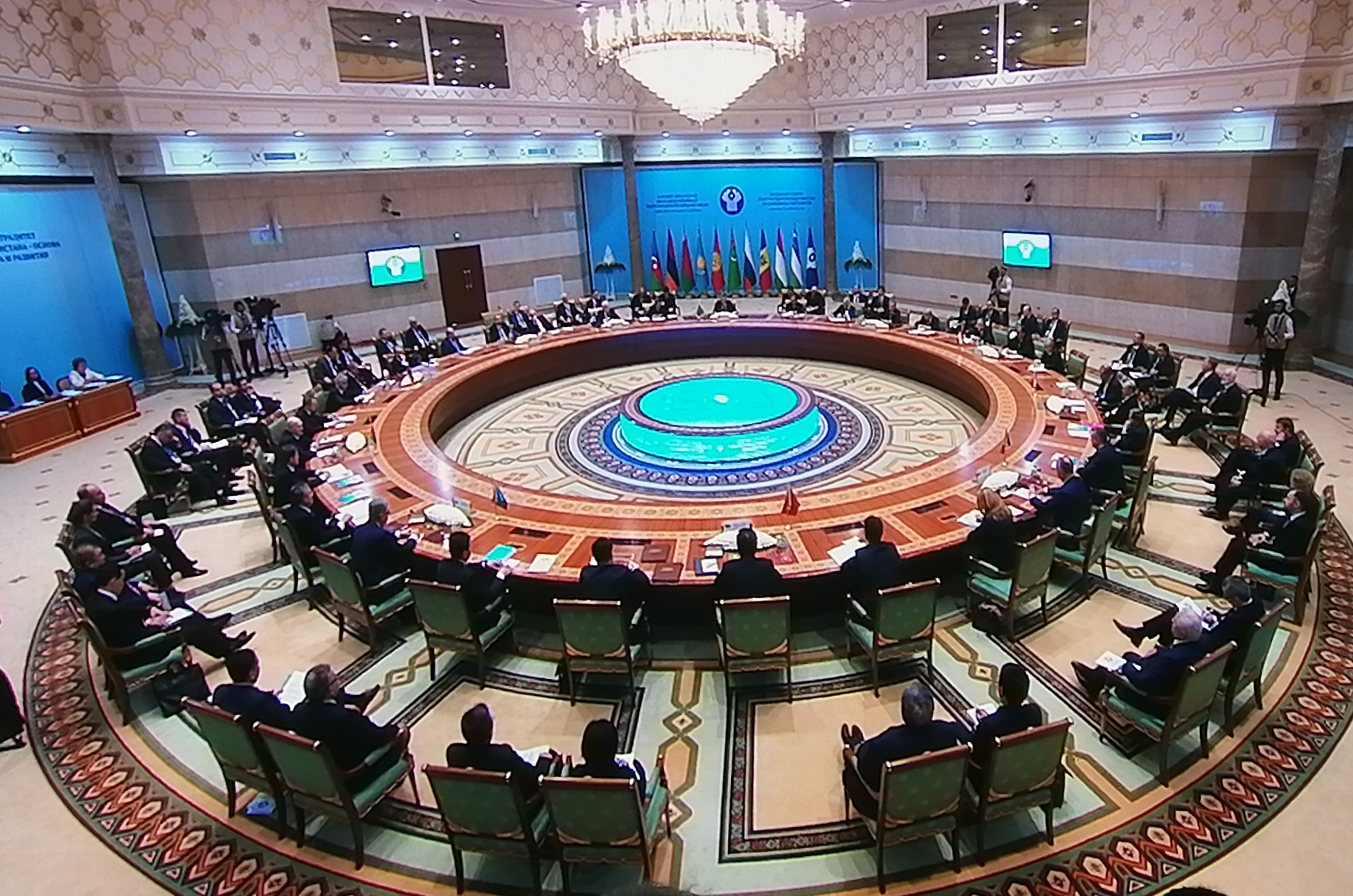
The following documents were signed by the heads of state in a wide format:
- Declaration on strategic economic cooperation of the member states of the Commonwealth of Independent States.
- Address of the heads of states of the Commonwealth of Independent States to the peoples of the Commonwealth countries and the world community on occasion of the 75th anniversary of the victory in the Great Patriotic war of 1941-1945.
- Convention on the transfer of execution of non-custodial penalties
- Programme of cooperation of the Commonwealth of Independent States member States in the fight against terrorism and other violent manifestations of extremism for 2020-2022
- Decision on the chairmanship in the Commonwealth of Independent States in 2020
- Decision on holding a regular meeting of the Council of CIS heads of state,
- Decision on the Chairman of the Executive Committee – CIS Executive Secretary
President of Turkmenistan awarded for contribution to development of humanitarian cooperation
At the end of the meeting of the Council of CIS heads of state, President Berdymuhamedov was awarded the medal of the CIS Interstate Fund for humanitarian cooperation “for merits in the development of humanitarian cooperation”.
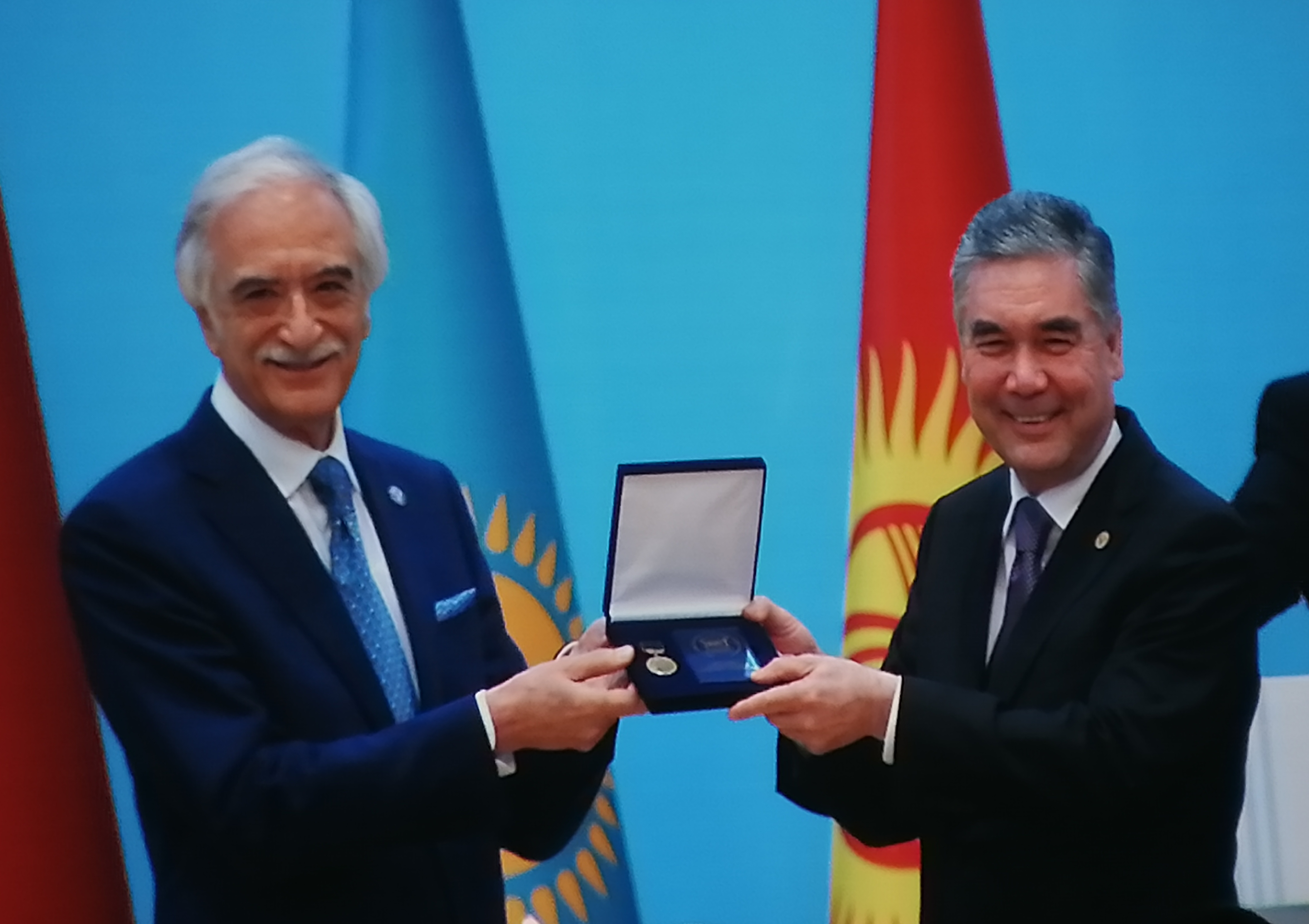
Chairman of the Fund’s Board, Ambassador of Azerbaijan to Russia Polad Bulbul oglu and co-Chairman of the Board, Special representative of the President of Russia for international cultural cooperation Mikhail Shvydkoi arrived in Ashgabat to present the award.
Lebedev awarded the order Bitaraplyk
President Berdymuhamedov awarded the Chairman of the Executive Committee – CIS Executive Secretary Sergey Lebedev the state order of Turkmenistan “Bitaraplyk” (Neutrality) for active international activities and great personal contribution to strengthening friendship and cooperation between countries and peoples.
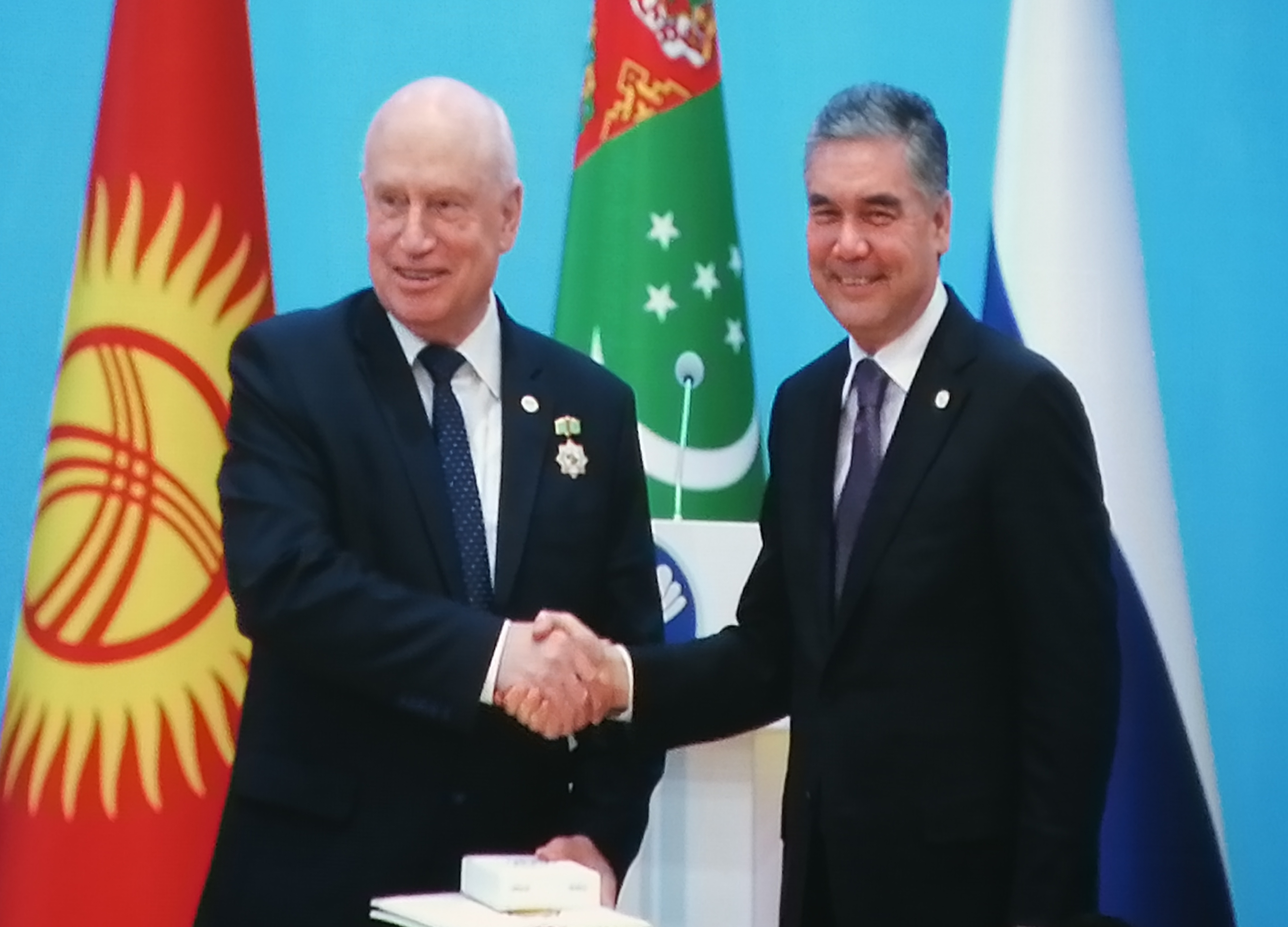
The Council of heads of state decided to extend the term of office of Lebedev as Chairman of the Executive Committee – Executive Secretary of the CIS for the next three years (until 31 December 2022).
Economic dimension of the Commonwealth activities – Visions of the leaders of the CIS nations
The CIS, an international organization uniting ten post-Soviet countries, is an impressive force in Eurasia, occupying almost 45% of the territory of the Eurasian continent and having a market of about 300 million people.
Economic development comes to the fore in the CIS. Each of the CIS member states builds its own economic model. However, in the age of globalization, mutual assistance, interaction, and intensification of trade exchanges can create new opportunities of economic progress. In short, the rapprochement of relations between the CIS countries can create a winning situation on the principle of “the five fingers as fist is power”.
This is especially true against the background of the latest forecasts of the World Bank on the decline in economic growth in Europe and Central Asia.
The Declaration on strategic economic cooperation, initiated by Turkmenistan in 2017, was signed in Ashgabat and developed under the Turkmenistan’s chairmanship in the CIS. Turkmenistan made worthy contribution to this process following its key foreign policy approaches on mutually beneficial and equal interaction. The document lays the basis for the expansion of economic presence of the CIS countries on a global scale.
In particular, the Declaration provides for priority directions of socio-economic development for the expansion and deepening of interstate economic relations, ensuring sustainable development, economic security, expanding academic, technical and innovative cooperation as a basis for the creation of joint competitive products, strengthening the positions of the Commonwealth countries in the world economy, improving the welfare and quality of life of the nations.
There is the need to quote speeches of some CIS heads of state, containing constructive proposals and ideas on the future shapes of economic cooperation in the Commonwealth (byspeakers’ queue order):
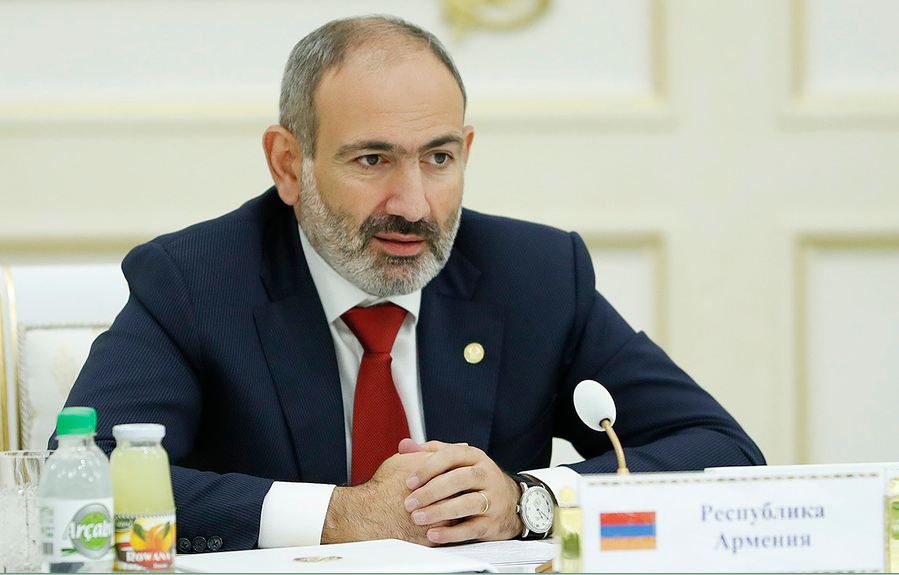
“We welcome the Declaration on strategic economic cooperation and support any initiatives aimed at deepening economic cooperation and expanding integration processes among the Commonwealth countries. The document defines the strategic goals of cooperation, for the achievement of which we believe that consistent and coordinated work is necessary both at the multilateral and bilateral levels,” Armenian Prime Minister Nikol Pashinyan said.
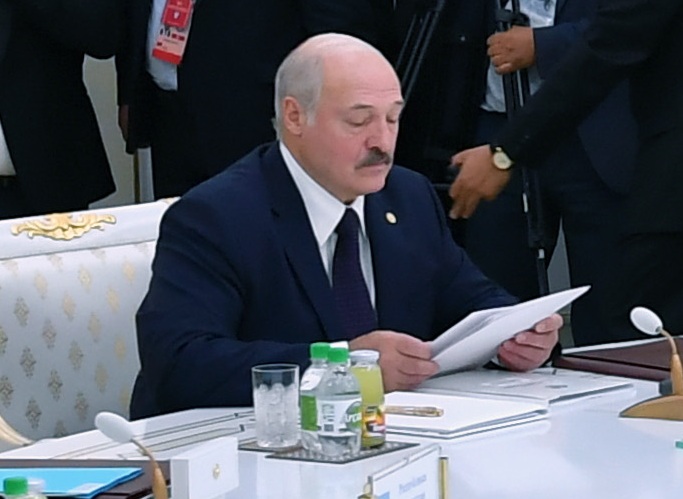 President Alexander Lukashenko of Belarus said: “The events in the world show that there is an objective need to strengthen our Commonwealth as a self-sufficient and effective union. And the economy was and remains the foundation of our cooperation. And it is very important that this document once again confirmed the desire to consolidate the economic potentials of the Commonwealth countries, to deepen production, cooperation and trade ties.”
President Alexander Lukashenko of Belarus said: “The events in the world show that there is an objective need to strengthen our Commonwealth as a self-sufficient and effective union. And the economy was and remains the foundation of our cooperation. And it is very important that this document once again confirmed the desire to consolidate the economic potentials of the Commonwealth countries, to deepen production, cooperation and trade ties.”
The Belarusian head of state expressed support for the intensification of cooperation in key areas, primarily in the transport, energy, industry, mutual investments and trade.
“A strong potential is seen in the expansion of the domestic market of our countries, increasing its capacity. First of all, by further liberalizing trade in both goods and services. A return to full-scale industrial cooperation and the creation of new joint competitive industries can ensure additional opportunities,” he added.
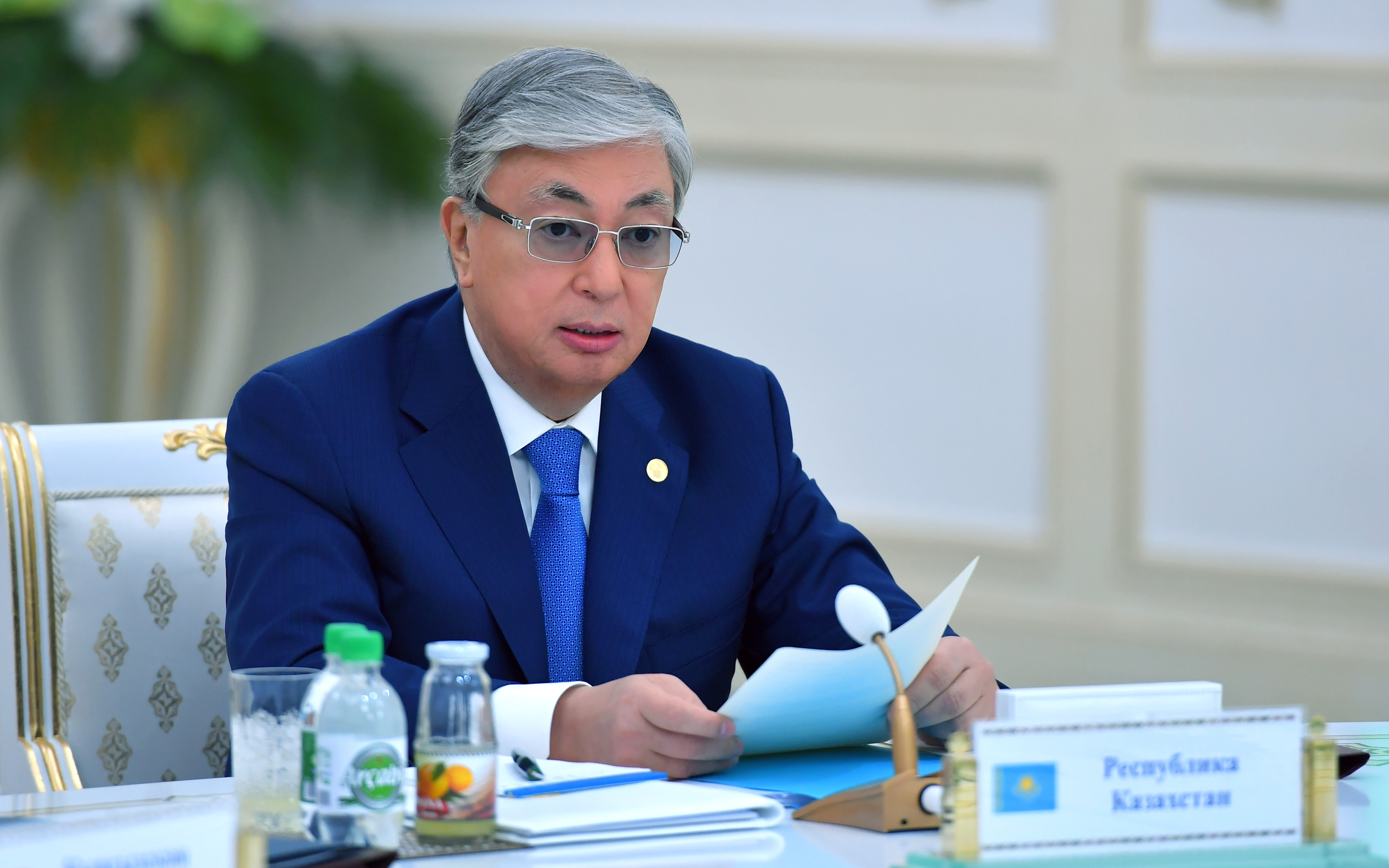 President Kassym-Jomrt Tokayev of Kazakhstan considers development of trade and economic cooperation is one of the priority tasks of the CIS, highlighting four areas for joint efforts-digital technologies, e-Commerce, free trade in services, tourism.
President Kassym-Jomrt Tokayev of Kazakhstan considers development of trade and economic cooperation is one of the priority tasks of the CIS, highlighting four areas for joint efforts-digital technologies, e-Commerce, free trade in services, tourism.
“The establishment of the CIS free trade zone in 2011 has improved the conditions for trade between our countries. However, further expansion of trade cooperation requires continued efforts to reduce existing obstacles. We need new growth points that would encourage economic cooperation within the Commonwealth,” said Tokayev.
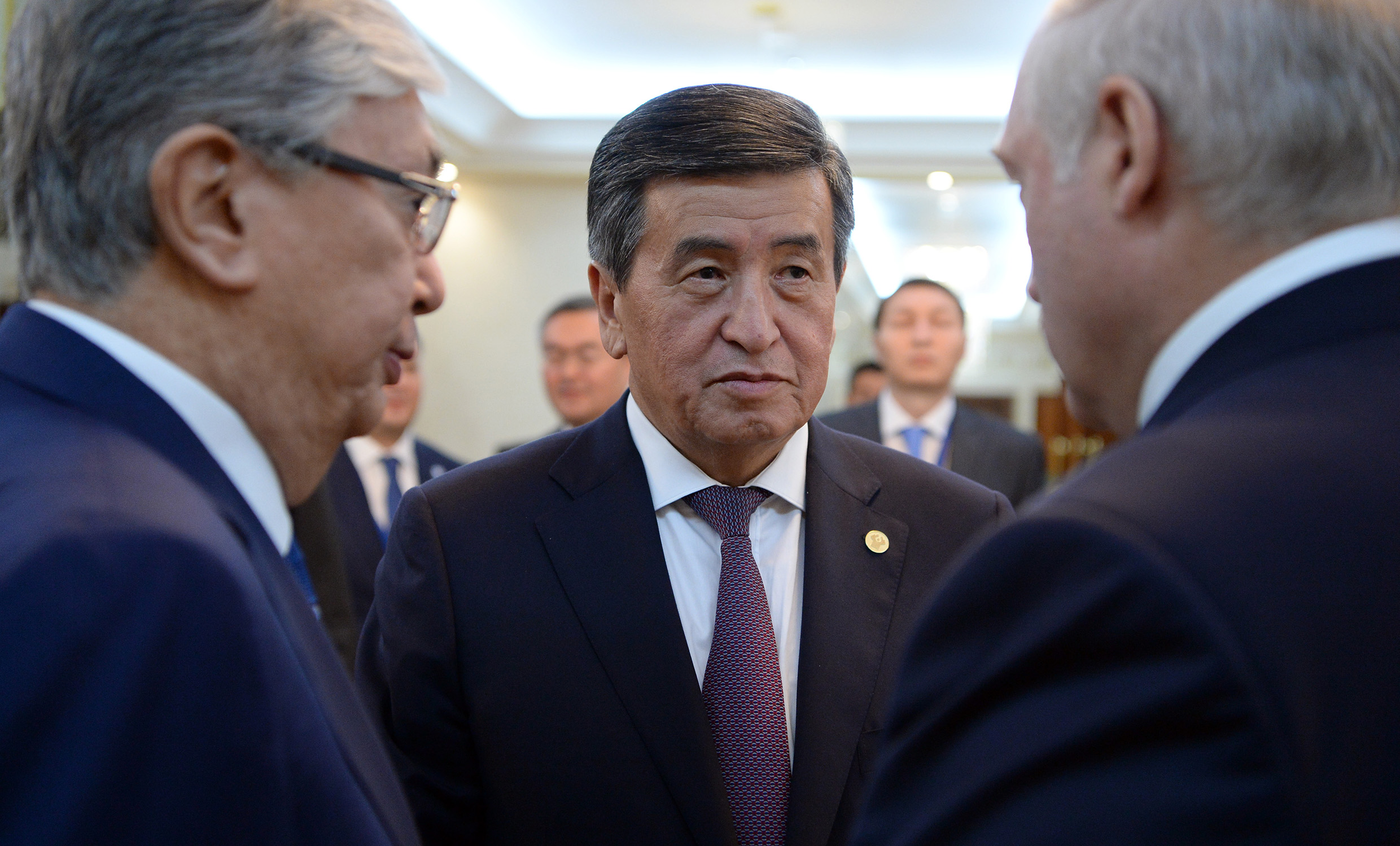 “It is necessary to focus our attention on the development of joint economic projects and the expansion of industrial cooperation,” President Sooronbay Jeenbekov of the Kyrgyz Republic said. He spoke in favor of creating favorable conditions for entrepreneurship and establishing mutually beneficial business ties.
“It is necessary to focus our attention on the development of joint economic projects and the expansion of industrial cooperation,” President Sooronbay Jeenbekov of the Kyrgyz Republic said. He spoke in favor of creating favorable conditions for entrepreneurship and establishing mutually beneficial business ties.
He also drew attention to the implementation of projects to introduce innovative achievements in the agro-industrial complex and logistics issues.
“For the Republic of Moldova, trade and economic relations with the CIS countries have always been and remain important and strategic,” confirmed the President of Moldova Igor Dodon.
According to him, the role of the CIS countries in the export of traditional Moldovan products remains high. CIS countries account for almost 100% of all exports of apples from Moldova, 91% of exports of other fruits, 53% – wine, 52% – canned vegetables, 46% – grapes.
“Not only trade is a motive for Moldova to deepen cooperation within the CIS. We see great potential in the development of domestic production cooperation, technological ties, in the implementation of joint projects of the CIS countries in the field of transport and logistics, energy, telecommunications, digitalization of the economy,” said the president of Moldova.
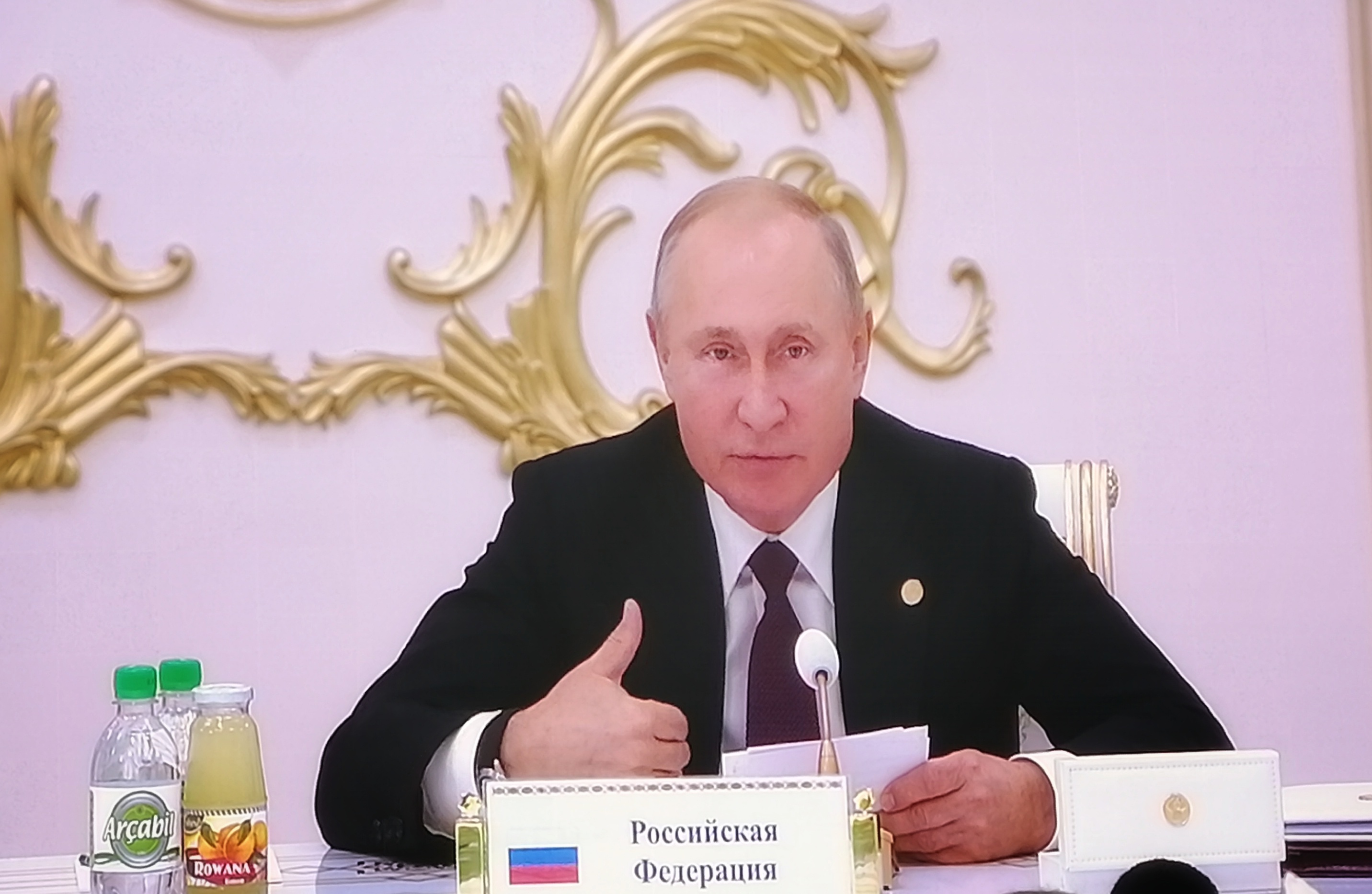 As of 2018, the total foreign trade turnover of the CIS countries increased by more than 17% and exceeded US $ 1 trillion. Trade turnover between the CIS countries amounted to US $ 190 billion. These figures came from the statement by President Vladimir Putin of Russia.
As of 2018, the total foreign trade turnover of the CIS countries increased by more than 17% and exceeded US $ 1 trillion. Trade turnover between the CIS countries amounted to US $ 190 billion. These figures came from the statement by President Vladimir Putin of Russia.
“We, of course, support the initiative of the CIS Chairman, the President of Turkmenistan, and today we will put our signature under the Declaration on strategic economic cooperation. The move is in the absolutely right direction. This comprehensive document provides for measures to promote ties between enterprises, the realization of sectoral areas of cooperation and so on. We are talking about high technologies, building up joint transport infrastructure, telecommunications networks, innovative development and energy. All this, in my opinion, is very important,” Putin said.
Russian leader also voiced the idea of switching to settlements in national currencies. “It is necessary to develop cooperation in the currency sphere, to coordinate the currency policy. If we ever come to this, we can talk about the formation of a common financial market. I am sure this will definitely benefit our overall competitiveness,” he added.
Uzbekistan to preside over the CIS in 2019
President Shavkat Mirziyoyev of Uzbekistan told about the main events planned for 2020 during the country’s chairmanship in the CIS.
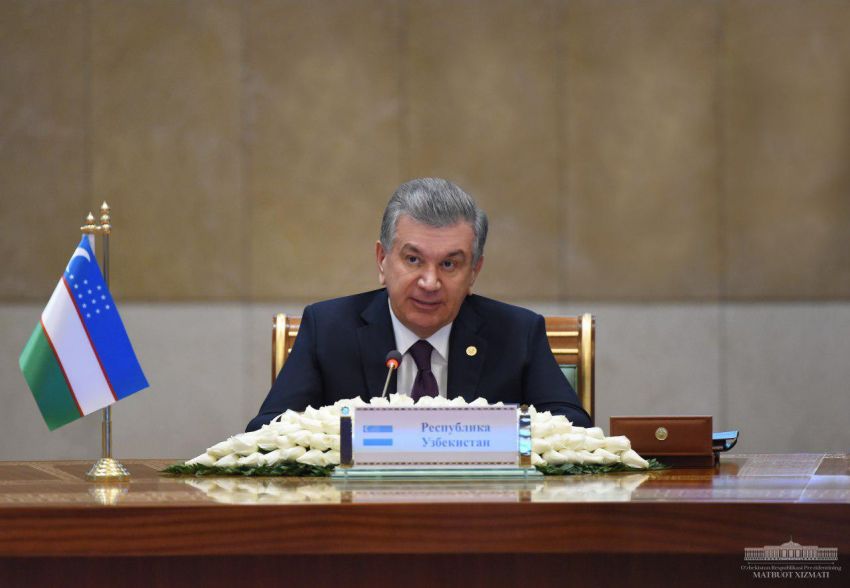
The Uzbek side proposed to accelerate the adoption of the new Concept of CIS development and the Strategy of economic development of the Commonwealth until 2030.
Special attention will be paid to ensuring the full functioning of the free trade zone, deepening industrial cooperation and the development of third-country markets, mutually beneficial forms of cooperation, the implementation of innovative, scientific and educational programs.
Mirziyoyev noted the importance of preparing Priorities for the development of transport and transit corridors and the Concept of interregional cooperation for a ten-year period.
Uzbekistan will host several events, including the first forum of the CIS regions, the meeting of the heads of the CIS Chambers of Commerce and Industry and the week of business initiatives of the Commonwealth.
Speech of President Berdymuhamedov at the CIS Summit of the Heads of State
Here is the unofficial, slightly paraphrased translation of the complete text of the speech of President Berdymuhamedov at the CIS Summit of the Heads of State:
Dear heads of state!
Dear heads and members of delegations!
Let me once again cordially welcome the heads of the CIS member States, heads and members of the delegations that came to us to participate in today’s meeting.
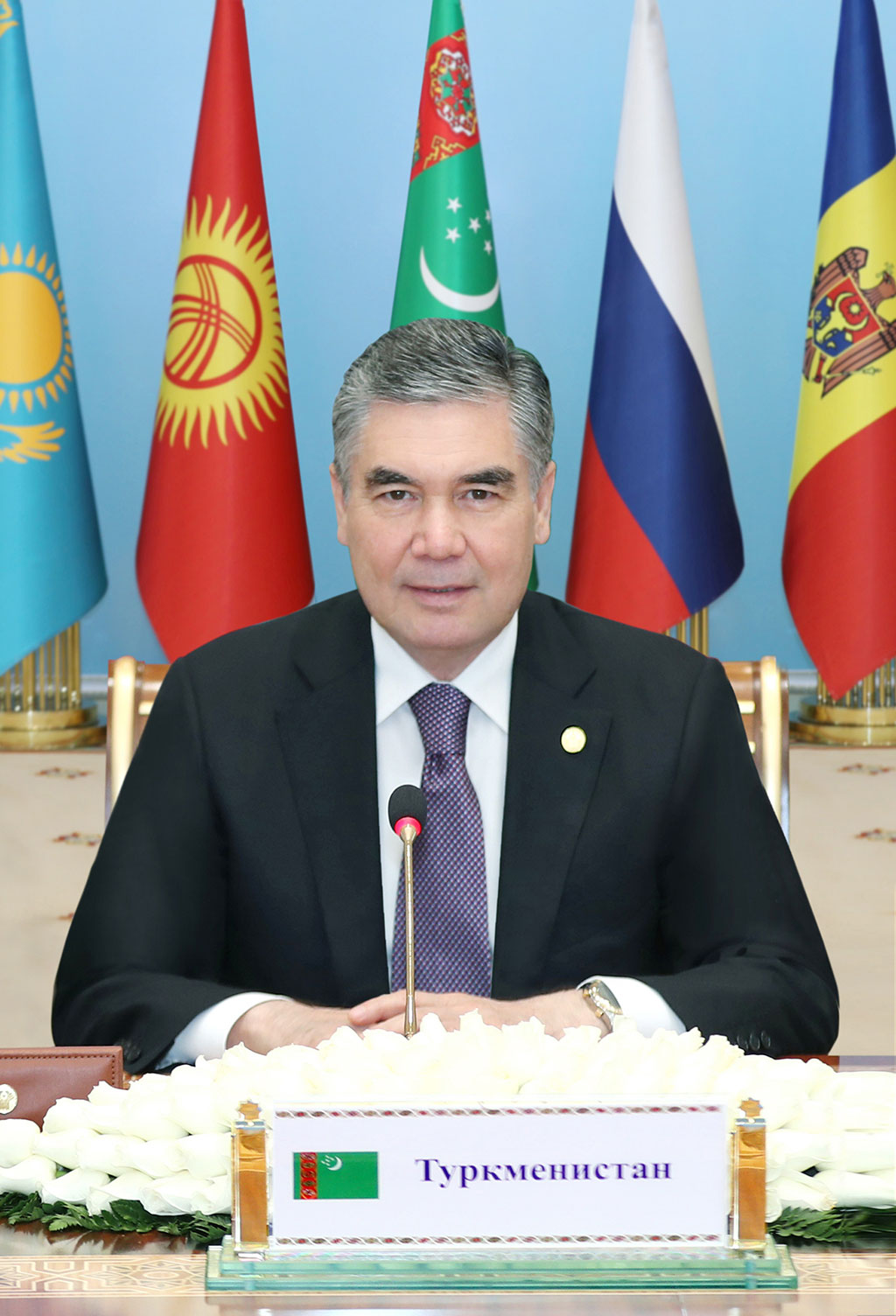
We have high and reasonable hopes for the further progressive development of the CIS. We have just had a serious and detailed conversation in a narrow format on the most important aspects of cooperation, on defining priorities and prospects for partnership between the CIS nations.
I am confident that all the issues under consideration will continue to move forward in a constructive manner and will find an effective solution, as befits sincere friends and reliable partners. In this regard, I would like to emphasize the main thing – the CIS is an active format of interstate cooperation, demonstrating its effectiveness and compliance with the fundamental interests of the peoples of the Commonwealth.
Today, our goal is to give new impetus to the work of the CIS, to bring it to a level that meets the realities and trends of modern development, to ensure the ability of the CIS to respond adequately and in a timely manner to changes in the international and regional agenda.
Turkmenistan proceeds from the above mentioned, building its approaches to the activities of the CIS, formulating proposals and initiatives aimed at activating and expanding the participation of the Commonwealth in global geopolitical and geo-economic processes.
Dear participants!
Strengthening lasting peace and security in the Commonwealth of Independent States has been and remains one of the absolute priorities of our cooperation.
At the same time, the most important task in the context of ensuring strategic and regional stability is to strengthen cooperation and ways of interaction between the CIS and major international organizations, primarily the United Nations. I am sure that we have common goals here, we have something to offer each other, and the CIS system dialogue with the UN will be useful and able to bring substantial outcome.
Within the framework of this dialogue, specific topics such as countering cyber threats and information security are relevant. We consider it necessary to intensify cooperation with specialized UN agencies in the fight against the terrorist threat, organized crime and drug trafficking.
Close cooperation between the CIS and the UN is also necessary to strengthen mutual understanding and trust in international relations, to establish a culture of dialogue in resolving emerging issues and contradictions. As known, on 12 September 2019, the UN General Assembly unanimously adopted a Resolution to declare 2021 the International year of peace and trust initiated by Turkmenistan and co-sponsored by 73 countries.
I would like to take this opportunity to express my gratitude to all CIS countries for their support and solidarity in the implementation of this initiative, which is important for strengthening global peace and security. I call on the CIS countries for joint work to achieve the goals set out in this document.
Dear participants!
Talking on encouraging the activities of the CIS, we, first of all, mean by this the economic component. Today, we need new, modern schemes and models of partnership, both within the Commonwealth and in the relations of the CIS with other nations and international economic organizations.
They must meet the changing realities of the global economy, the formation of new economic centers, the widespread introduction of innovations and digital technologies. All this requires us to rethink the nature of our cooperation, to enter, in addition to traditional, new, promising areas.
In the conditions of global competition it is necessary to do it quickly and effectively. Based on this, at the initiative of Turkmenistan, the Declaration on strategic economic cooperation of the CIS member states was developed. The document is aimed at forming a coordinated approach to the implementation of the economic interests of the Commonwealth as a whole and each of the CIS member states individually.
It suggests the setting up effective partnership mechanisms that will improve economic ties both within the Commonwealth and with other integration associations and countries. The Declaration as a whole was approved at the CIS Economic Council held on 13 September in Ashgabat and included in the agenda of the current meeting of the Council of heads of states. I propose today to adopt the above Declaration.
I would like to emphasize that the meetings of the CIS statutory bodies, in particular the Council of heads of government and the Economic Council, show that there are good opportunities for building up economic partnership. At the same time, energy, industry, transport, trade, technological cooperation and a number of other areas should be identified as promising areas of cooperation.
We stand for closer cooperation between the business communities, with access to specific joint projects, and the wide holding of exhibitions and fairs of producers within the CIS. In this sense, we support the work of the relevant industrial councils and committees of the CIS.
Revealing the essence of economic cooperation in the CIS, I would like to focus on the fact that one of the most important areas of our partnership is the energy sector. International relations on this topic within the UN and at other venues is becoming increasingly substantive. The CIS takes an active part in it.
We highly appreciate the support provided by the CIS countries during the adoption by the UN General Assembly of resolutions on the transit of energy resources to international markets initiated by the Turkmen side. We hope to continue cooperation in this direction. To this end, our country will submit to the current 74th session of the UN General Assembly a new draft resolution on the role of reliable and stable energy transit in ensuring sustainable development and international cooperation.
We see partnership in the transport sector as a priority for the CIS. It is relevant today against the background of a significant growth in freight and passenger traffic. We need to turn into life the competitive advantages of our countries – their geography, infrastructure compatibility, existing experience and traditions of cooperation-in order to form new transit corridors and joint access to major transport services markets, within a short space of time.
This is dictated by the course of modern economic development, the realities and pace of international competition in the transport and communications sector. There are already good examples of the implementation of such projects, in which the CIS countries participate. In this case, I am referring to cooperation in the construction of new rail routes in the Commonwealth with access to neighboring countries.
For example, the rail line Kazakhstan-Turkmenistan-Iran, open good prospects for raising the volume and quality of trade and economic cooperation of the CIS countries on the Eurasian continent. In this context, I would like to return to the initiative we first put forward at the Sochi summit of the CIS in October 2017 to bring the CIS to broad integration on an international scale, the participation of our countries in major infrastructure projects in the field of transport and communications not only in the CIS, but also beyond its borders.
Dear participants!
Of course, the humanitarian sphere should be in the field of our close attention. Cooperation in culture, science, education, sports, through children’s and youth organizations is an investment in the future, a guarantee that friendship, mutual understanding, sympathy and trust between our countries and peoples will be consistently strengthened.
We support the existing forms of humanitarian cooperation in the CIS and call on all CIS countries to actively participate in the implementation of relevant programs.
We believe it is necessary to further improve the joint activities of our states in this area.
It seems that the time has come for a more active practical realization of the ideas and proposals to promote the rich and multifaceted cultural heritage of the peoples of our countries.
At the same time, we believe it expedient to take a fresh look at relations in cultural, educational, sports and other spheres. In this regard, we propose to consider the possibility of holding annual theater festivals of the CIS, exhibitions of fine and applied arts of the peoples of our countries, regular educational fairs.
We also support holding the CIS Sports Games on a systematic basis and raising their ranking in the international sports arena.
Taking into account the enormous potential of our countries in the sphere of tourism, it is believed expedient to propose working out new concept of cooperation in the field of tourism, which could be included in the agenda for one of the next meetings of the Council of heads of governments.
Dear participants!
Turkmenistan views the present summit as an important stage in the activities of the Commonwealth of Independent States, both in terms of assessing and understanding the path traveled and determining prospects for the future.
A significant factor in the activity of our Commonwealth is that it follows the goals and fundamental principles laid down in the foundation of modern international partnership. I am referring to the fact that over the years the CIS has maintained its focus as a format of cooperation based on the goodwill of the participants, equality, mutual understanding and mutual respect.
I am convinced that adherence to these principles ensures the viability and flexibility of the Commonwealth of Independent States, reveals new facets and prospects for partnership, and determines the existence of the CIS as an integral element of the system of international stability and security.
It is also gratifying that the CIS is consistently expanding its relations with the outside world, developing cooperation with international organizations and many countries.
All these results can be put in the jointly accumulated positive baggage. But time requires us to develop new approaches to the activities of the CIS, taking into account current trends in world politics and economy.
In this context, we believe that our joint work today and in the future should be featured by great dynamism, thoroughness, healthy pragmatism, and focus on solving practical problems related to issues of interstate cooperation and the daily lives of citizens of our countries. This will have a positive impact on the effectiveness of the CIS.
Dear participants!
Next year, our country, together with the international community, will celebrate the 25th anniversary of Turkmenistan’s permanent neutrality. Over the years, Turkmenistan has repeatedly demonstrated by its active position the high efficiency of practical application of the principles of neutrality in solving various international problems.
In many cases, the neutral status of our country has been and remains a factor in strengthening regional and international stability and security, developing multilateral economic and humanitarian cooperation.
In order to widely demonstrate and consider the advantages of neutrality as a political and legal category that can become an effective tool in the diplomatic arsenal of the UN, a number of major international events dedicated to the anniversary of Turkmen neutrality will be held in Ashgabat on 12 December 2020.
Among them, an important place will be given to the International conference on peace, security and sustainable development.
I take this opportunity to invite all heads of state and heads of delegations of the CIS countries to take part in these celebrations. /// nCa, 14 October 2019